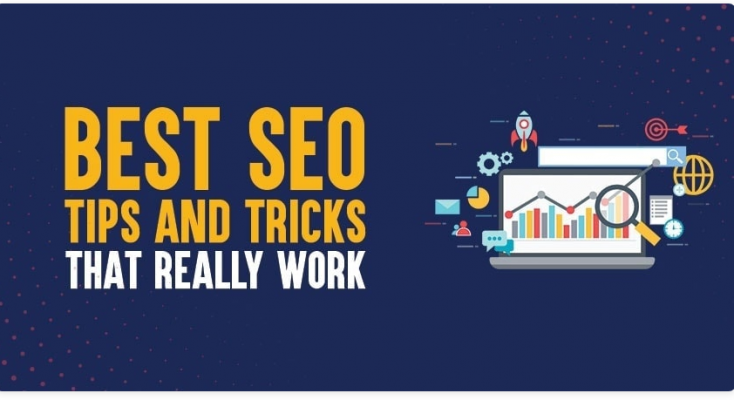Lets get right to it, here are the top 50 SEO tips by ReputationBlogger.com
50 SEO tips for small business websites:
- Keyword Research: Use tools like Google Keyword Planner to identify relevant keywords.
- Optimize Titles: Include primary keywords in your page titles.
- Meta Descriptions: Write compelling meta descriptions with keywords.
- Header Tags: Use H1, H2, and H3 tags to structure content.
- Quality Content: Create valuable, original content regularly.
- Mobile-Friendly Design: Ensure your site is responsive.
- Page Speed: Optimize images and use caching to improve load times.
- Internal Linking: Link to other pages on your site to improve navigation and SEO.
- External Links: Link to reputable external sites to enhance credibility.
- Local SEO: Optimize for local search with Google My Business.
- NAP Consistency: Ensure Name, Address, and Phone number are consistent across listings.
- Customer Reviews: Encourage and manage online reviews.
- Use Alt Text: Add alt text to images for better accessibility and SEO.
- Social Media Integration: Share content on social platforms to drive traffic.
- Secure Website: Use HTTPS to secure your site.
- Sitemap: Create and submit an XML sitemap to search engines.
- Robots.txt: Ensure your robots.txt file is properly configured.
- Schema Markup: Implement schema markup to enhance SERP features.
- Long-Tail Keywords: Target long-tail keywords for specific search intents.
- User Experience (UX): Improve site navigation and usability.
- Content Updates: Regularly update content to keep it fresh.
- Blogging: Start a blog to provide valuable information and target keywords.
- Social Proof: Display testimonials and case studies.
- Multimedia Content: Use videos and infographics to engage visitors.
- Analytics: Use Google Analytics to track performance and make data-driven decisions.
- Competitor Analysis: Analyze competitor strategies for keyword opportunities.
- Backlinks: Build high-quality backlinks from reputable sources.
- Broken Links: Regularly check and fix broken links.
- Anchor Text: Use descriptive anchor text for internal and external links.
- Local Keywords: Use local keywords in content and metadata.
- FAQ Pages: Create FAQ pages to answer common questions.
- Evergreen Content: Focus on content that remains relevant over time.
- Optimize URLs: Use short, descriptive URLs with keywords.
- User-Generated Content: Encourage user-generated content to increase engagement.
- Contact Information: Make contact information easily accessible.
- Email Marketing: Use email campaigns to drive traffic and engagement.
- Landing Pages: Optimize landing pages for specific campaigns.
- Voice Search Optimization: Optimize for voice search queries.
- Google Search Console: Use Search Console to monitor site health.
- Influencer Collaboration: Partner with influencers for content and backlinks.
- Content Length: Write in-depth articles to cover topics comprehensively.
- Seasonal Keywords: Target seasonal and trending keywords.
- Video SEO: Optimize video titles, descriptions, and tags.
- Content Distribution: Distribute content through multiple channels.
- 301 Redirects: Use 301 redirects for broken or outdated URLs.
- Engaging Headlines: Craft attention-grabbing headlines.
- Site Search: Implement a search feature for better user experience.
- Content Clusters: Organize content into clusters for better SEO.
- Image Optimization: Compress images without losing quality.
- Continuous Learning: Stay updated with the latest SEO trends and algorithm changes.
Implementing these tips can help improve your small business website’s SEO and drive more organic traffic.


